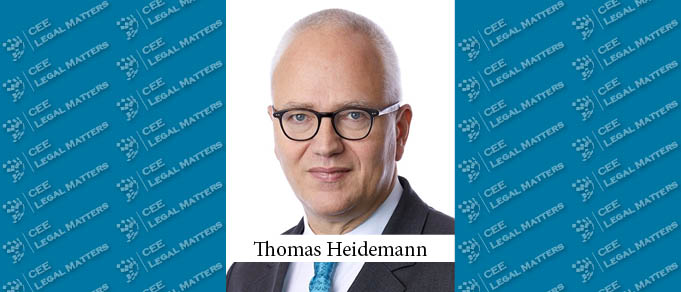After an initial wave of euphoria at the prospect of seeing autonomous vehicles (AVs) on our streets and the associated opportunities and new business models that AVs could create, there is now more realism as to what will actually be possible in the short term. One of the main reasons for this shift is the immensely high cost of making self-driving technology ready for the market and for mass production. There are also no internationally recognised, uniform rules or regulations currently governing the circumstances for using AVs on public streets. This adds further complexity to their development and roll out. So while self-driving technology promises a range of benefits for business and society as a whole, significant challenges remain to be overcome on the road to mass adoption. At the very least, legislators need to make sure that the existing regulatory framework does not act as a barrier to technological development in this area.
Dr. Thomas Heidemann and Maxim Gubanov answered five questions on the legal requirements for testing and using AVs in Russia.
1. Is the testing of AVs (SAE Levels 3-5) permitted on public roads in your jurisdiction?
Yes, the testing experiment is currently underway in a number of Russian regions including Moscow. The experiment was initiated by the Government of the Russian Federation in 2018. The respective participants can only be legal entities, which are obliged to pass through an admission procedure that includes technical expertise with the vehicle, etc.
2. Are consumers permitted to use AVs (SAE Levels 3-5) on public roads in your jurisdiction?
Not yet, as the relevant car model is unlikely to pass the certification for its use on public roads under current safety standards. However, the Government of the Russian Federation recently adopted the Concept on Ensuring Safety on Pubic Roads While Using Pilotless Vehicles. The Concept sets forth five levels of driving automation and anticipates future developments in this area including the need to create a necessary infrastructure for the use of AVs, etc.
3. Who has liability for damages caused by a car in automated driving mode?
The owner of the AV that participates in the testing experiment remains liable, unless it has been proven that the relevant traffic accident has happened due to fault of other traffic participants.
4. Are there any specific mandatory insurance requirements for AVs?
Yes, the insurance coverage against third party liability should be RUB 10m (approx. EUR 125,000) – for each AV participating in the testing experiment.
5. Is there general liability based on warranty claims against the manufacturer for AVs?
Russian consumer legislation allows consumers to file claims directly to the manufacturer. As soon as it is permissible for the corresponding AV to be sold to consumers, its manufacturer will likely be exposed to potential direct liability from consumers similar to other car manufacturers.
By Thomas Heidemann, Partner, and Maxim Gubanov, Senior Associate, CMS


